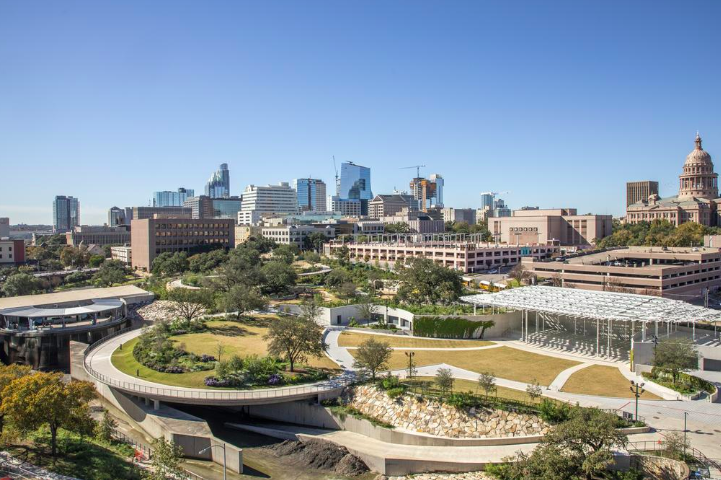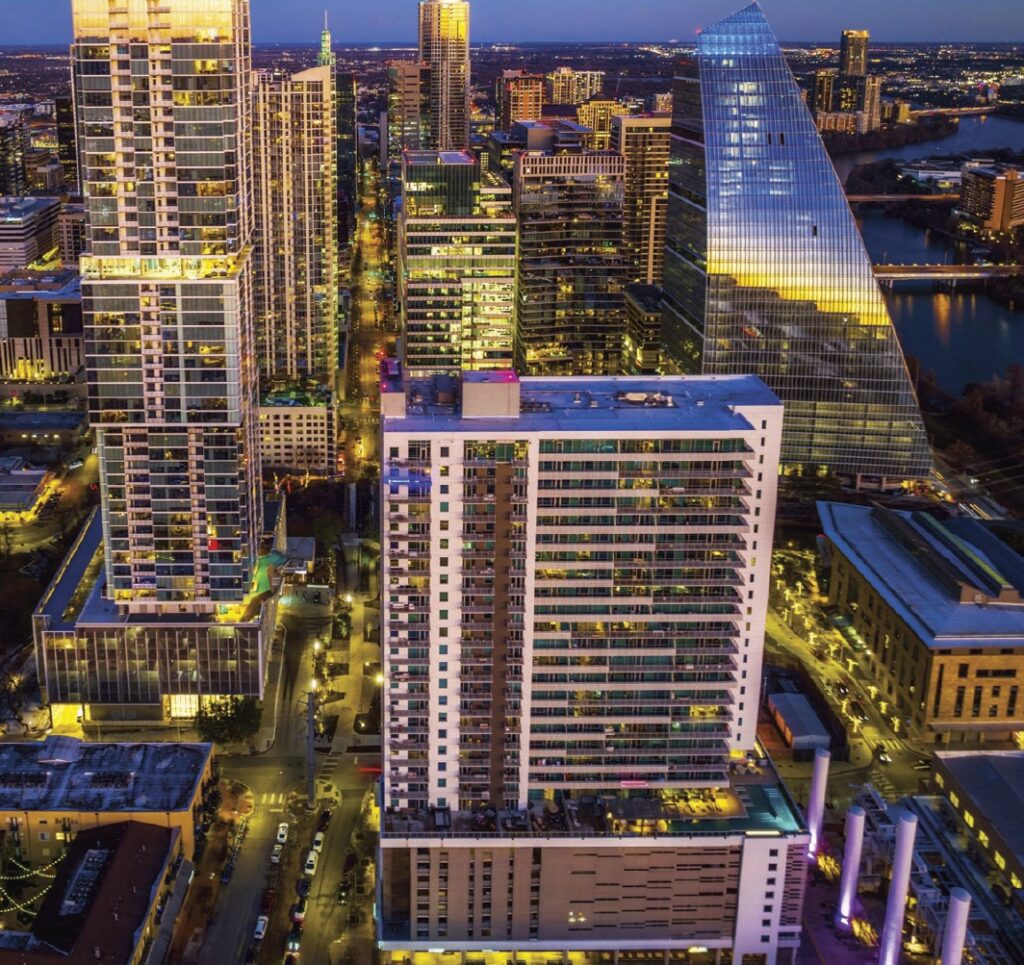When Silicon Valley-based Meta Platforms Inc. — parent company of Facebook — opted to eat up the entire commercial half of a future 66-story downtown Austin high-rise, the reasoning was simple: Location, location, location.
Despite the company’s plans for expanded remote work, Meta late last year leased 589,000 square feet of office space across 33 floors at Sixth and Guadalupe, under construction at 400 W. Sixth St., due to its proximity to some of the company’s other offices, its modern amenities and its location in a vibrant, thriving urban core, according to Meta spokesman Tracy Clayton.

“We’ve always taken a lot of pride in our unique office experience and believe our physical spaces play a vital role in building our culture. Whether it’s the unique space design or diverse artwork, we’ve always considered our offices to be a physical representation of our values and still believe they’re vitally important to accommodate growth and collaboration,” Clayton said in an email.
Big tech companies have been at the forefront of embracing remote and flexible work. But even if they aren’t expecting all employees to clock in at their offices 40 hours a week, they seem eager to continue investing in space in Austin’s Central Business District. That’s undoubtedly reassuring for the downtown bars, music venues, restaurants and stores that depend on foot traffic.
Robust job growth helps explain the leasing trends. The Austin metro has added 60,000 office jobs since February 2020, a 60% increase, according to an Avison Young report. Direct office vacancy in the CBD was 13.7% in the first quarter of 2022, according to Avison Young, with more than 2 million square feet under construction.
Some of the largest leases in Austin in the past six months were big technology companies grabbing downtown real estate. In addition to Meta (Nasdaq: FB), California-based TikTok Inc., the video-based social media platform, is believed to have leased at least 126,000 square feet at 300 Colorado, and Snap Inc. (Nasdaq: SNAP), the California-based parent company of Snapchat, took two floors at 405 Colorado, according to CoStar. Plus, Cirrus Logic Inc. (Nasdaq: CRUS), an Austin-based semiconductor supplier, leased 114,000 square feet at 701 Rio, according to the Avison Young report, a deal that has not been previously reported.
Marc Vanderslice, senior vice president at real estate services firm CBRE Group Inc., said neither the pandemic nor the rising cost of downtown real estate have significantly decreased demand. Companies look to downtown because they want amenitized buildings and walkable retail.
Research from CBRE found that the tech sector has added more office-using jobs nationwide than any other since the start of the pandemic. From February 2020 to February 2022, the U.S. added 372,000 tech jobs. That accounted for 51% of all office-using jobs created over the same time period.
“There is a tremendous amount of demand on the newer, very high quality office assets that are above and beyond on the amenities scale, with gyms and meeting space, and have walkable retail,” Vanderslice said. “Companies that are coming in that aren’t here and don’t already have a presence, they’re typically focusing on these newer assets.”
With tech companies hiring extensively in Austin, Vanderslice said they are expanding their footprints to match, even if they are still figuring out how to best utilize that space. When Meta announced its Sixth and Guadalupe lease, the company said it would add at least 400 local employees, on top of the 2,000 it already has in town.
“A lot of it is due to hiring to accommodate the tremendous amount of additional workforce added. It’s also a branding opportunity for companies and I think companies are realizing they may not utilize space how they used to, prior to the pandemic,” Vanderslice said. “But the majority of companies seem to still want some type of a footprint, some type of a flag, where people can collaborate, meet.”
Clayton said Meta moved forward with its large lease even though a lot of employees work remotely — and that the company will continue to offer that option.
“Ultimately, we want all of our employees to be successful, no matter where they choose to work,” he said.

Meta has also leased an entire tower in the region’s other dense office market, The Domain, which is home to other large tech offices from the likes of Vrbo and Amazon. Austin’s east side is also seeing tremendous office construction. Meanwhile, high-tech manufacturers who need industrial space usually settle on the outlying suburbs, where land is cheaper and more available, from Tesla (Nadsaq: TSLA) in eastern Travis County to Samsung in Taylor and CelLink in Georgetown.
But the latest data and reports from brokers suggest the Central Business District still has a unique allure for tenants, despite the highest rent costs in the metro. Average triple-net asking rent for class A space in the CBD was $43.33 per square foot in Q1, according to Avison Young.
Vanderslice expects the trend of big teach leases downtown to continue due to the high quality of life in Austin, its business-friendly climate and its workforce.
“All signs point to a tremendous amount of demand to come to Austin still. The playbook is, typically companies set up an initial office and they typically grow that office here. I’ve worked with a number of them that have done just that,” he said. “They set up what they think is a very long-term office and they find out that the labor market is a very good one and this is a place where people want to live.”
The Article is from Austin Business Journal, copyright belongs to owner

